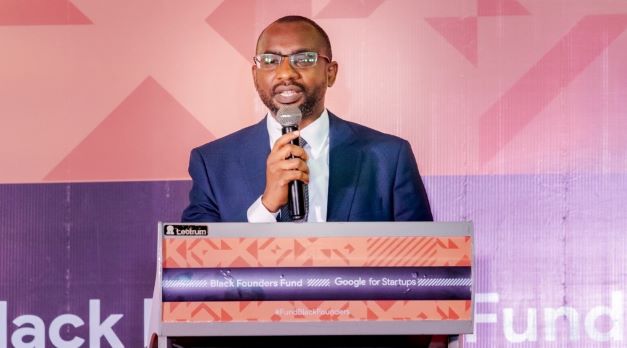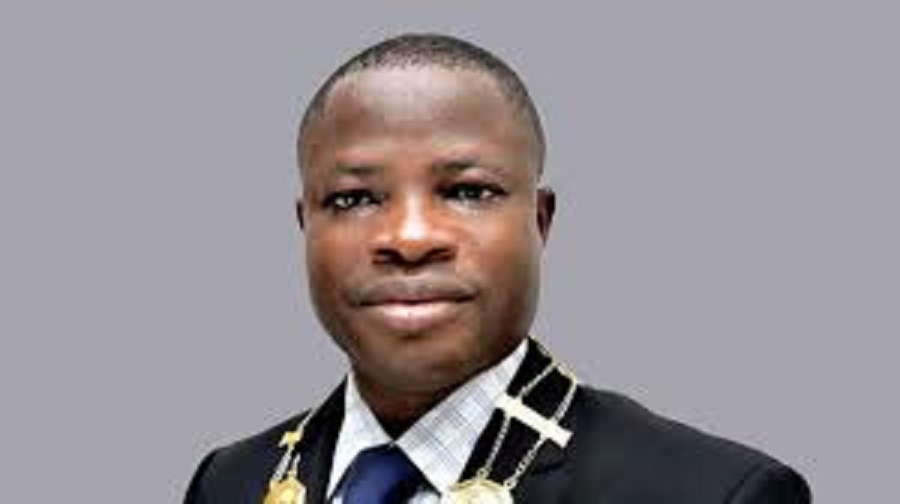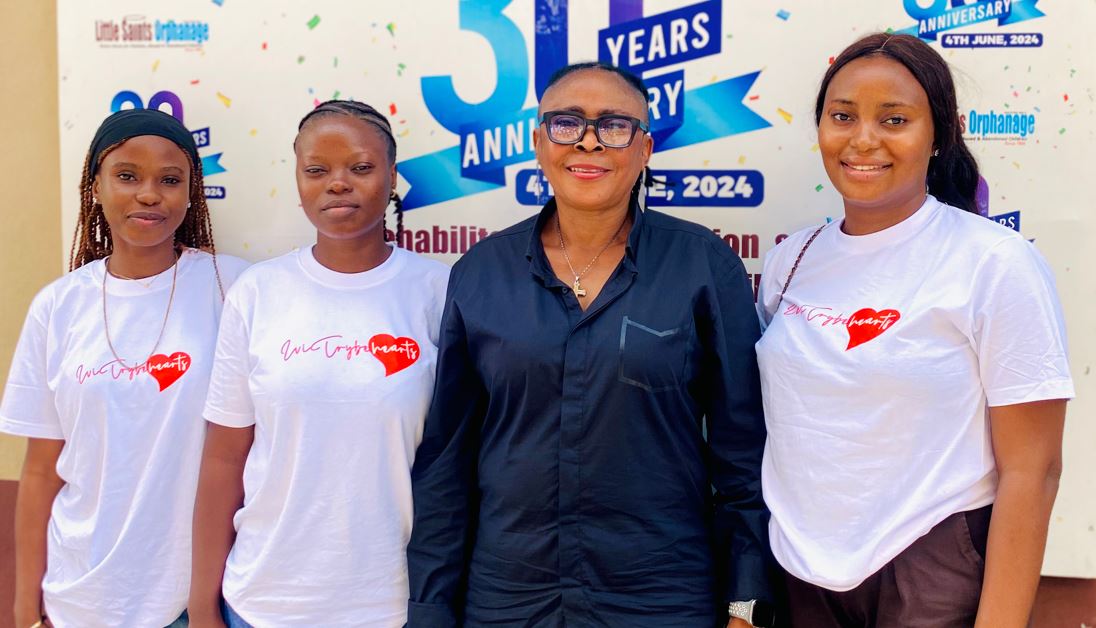News
NITDA DG Reiterates Agency’s Commitment to Grow Region’s Tech Ecosystem

In view of the relatively low visibility of the Innovation ecosystem in Northern Nigeria, despite being a region with hub of innovators, creatives, startups and several success stories, the Director-General of the National Information Technology Development Agency (NITDA), Kashifu Inuwa Abdullahi, CCIE, has reiterated the Agency’s commitment to support, and catalyse the emergence/growth of the region’s innovation ecosystem.

Inuwa said this while delivering a Keynote Address during a ‘Stakeholders’ Engagement on the State of the Northern Innovation Ecosystem’, which held in Abuja.
Describing the event as “‘setting the sense of urgency for something to be done in favour of the Northern Innovation Ecosystem’, the Director-General noted that the timely call amplifies the opportunities, challenges as well as the need to build strategic partnerships toward achieving the overall goals.
“This platform has spurred the necessary conversations that we need to have in order to tackle some of the bottlenecks that have over the years stifled the growth of the ecosystem in the region”.
“As an Agency under the Ministry of Communications, Innovation and Digital Economy, we are here to add our collective voice and render relevant support targeted at fostering economic growth and development in the North and Nigeria as a whole”, Inuwa affirmed.
The DG Aligned the thrusts of the discussions to the Federal Government’s ‘Renewed Hope Agenda’ and one of the Priority Areas of the President Bola Ahmed Tinubu Adminstration, which is ‘Accelerating Diversification through Industrialisation, Digitisation, Creative Arts, Manufacturing and Innovation’.
According to the DG, the involvement of NITDA in the quest, further aligns with some pillars of the Agency’s Strategic Roadmap and Action Plan, which deal with ‘Nurturing an Innovative and Entrepreneurial Ecosystem’ and Forging Strategic Partnerships and Collaboration amongst others.
Inuwa expressed the hope that the Northern Innovation Ecosystem will be used to create jobs, solve agricultural problems, healthcare, transportation, education and many more in the region.
“In the North and Nigeria in general, our biggest opportunity is the large market and expansion we have, because we have a young population where more than 60% is under 25, which means they are digitally natives”.
“Given the fact that our greatest resource as a country is human capital, we therefore, want to harness this population to make Nigeria a talent net exporter”, the DG avowed.
The NITDA Boss who took time to explain the Strategic Blueprint (five Pillars) of the Ministry and of course the Agency’s eight Pillars of the SRAP document, and how they directly address some of the issues raised, urged for the need to co-create and co-design the solutions with the ecosystem, in order to build trust between the ecosystem and the government.
“We want them to know that the government is here to handhold and support them in terms of interventions, building the talents, and infrastructures in unserved and underserved communities, as well as providing the incentives for them to grow”, Inuwa assured.
Inuwa however challenged Northerners not to allow the identifed challenges in the area to hinder their innovative ideas, as there are silver linings in each difficulty.
“Lack of funding is always one of the issues, yes, but we can start with the small we have. It is not enough to always mention the challenges, let us also look for innovative ways to tackle them”, Inuwa urged.
Inuwa informed the audience that the Agency is conceptualising the idea of establishing Technology Development Zones, one in each geopolitical zone of the country, adding that there are plans to also have an average innovation hub in every state of the federation.
“To sustain and deal with the recurring challenge of monopoly of the hubs by some facilities in Universities, we are trying to come up with a framework where we can build innovation hubs outside of Universities, then sign an M.O.U with the ecosystem to bring in anyone that is willing to manage the facility, we will give the person targets and KPIs to aid the management of such hubs”.
“It is an idea we are trying to conceptualise and we are open to co-designing it with the ecosystem, so anybody who is interested can reach out to us, so that we can figure out how to achieve that”, the Director-General said.
Head of Experimentation, United Nations Development Programme (UNDP), Jamila Mohammed, while speaking on the essence of the meeting, maintained that the whole idea around having the conversation with the stakeholders for the northern innovation ecosystem is to begin to engage key players in the innovation space to come together and help in positioning the ecosystem, in order to address developmental challenges in the region.
“The essence of all this is to galvanise action to catalyse action, to be able to disrupt the way innovation is done in the region itself”.
“There is a need for us to pull all our resources together to be able to position the resource system to accelerate the SDGs, because we know we are far behind in achieving Sustainable Development Goals and there is that urgency to be able to come up with new methodologies, and solutions that will take us to that promised land”, Ms. Jamila noted.
Other stakeholders took turns to share their thoughts, as they unanimously affirmed the fact that the Northern Ecosystem Working Group (NEW-G) which was established in collaboration with UNDP remains a significant rallying point to nurture and fuel the Northern Ecosystem’s emergence with strategic levelling up initiatives.
News
OAU Taps Aderounmu, Tech Advocate as DVC Academics

Obafemi Awolowo University (OAU), Ile-Ife, has appointed Professor Adesola Aderounmu, renowned computer scientist and technology advocate, as its new Deputy Vice-Chancellor (Academics).

Professor Adesola Aderounmu
The decision, made by the university’s Senate, marks a strategic step towards aligning OAU’s academic vision with technological innovation and global best practices.
A distinguished scholar and leader in Computer Science and Engineering, Professor Aderounmu brings decades of experience to this pivotal role.
He has served as the Centre Lead for the African Centre of Excellence in Software Engineering and the Obafemi Awolowo University Knowledge Park (OAK-Park), where he has driven initiatives that advance technological innovation and academic excellence.
His leadership journey includes serving as Dean of the Faculty of Technology and Head of the Department of Computer Science, as well as President of the Nigeria Computer Society from 2015 to 2019. Under his stewardship, the Africa Centre of Excellence in ICT (OAK-Park) was established and has flourished, positioning OAU as a hub for digital transformation in Nigeria and across Africa.
“This is an opportunity to shape the future of education at OAU,” Professor Aderounmu stated. “I am committed to fostering an environment where ideas thrive.”
Professor Aderounmu’s appointment as DVC Academics carries significant implications for the information technology profession and industry in Nigeria and Africa.
His leadership is expected to further bridge the gap between academia and industry, aligning curriculum with emerging technological trends, and fostering research that directly addresses the needs of Nigeria’s evolving digital economy.
His commitment to developing high-level ICT talent will contribute to strengthening the nation’s capacity in critical areas such as artificial intelligence, cybersecurity, software engineering, and digital entrepreneurship.
As Nigeria and Africa continue to embrace digital transformation, this appointment signals a continued push for collaboration between universities and the technology industry, ensuring that graduates are equipped with globally relevant skills while advancing innovative research that supports the tech ecosystem.
This appointment recognises Professor Aderounmu’s unwavering commitment to research, excellence in education, and visionary leadership, and marks a significant milestone in the university’s ongoing mission to deliver impactful education and innovation for national and continental development.
News
IviTrybe Hearts Takes Kindness Drive to Little Saints Home

In a heartwarming demonstration of corporate social responsibility and community impact, IviTrybe Hearts, a key initiative driven by members of IviTrybe – a vibrant group of budding marketing communications specialists – visited the Little Saints Orphanage, Akowonjo branch.

The visit, part of IviTrybe’s ongoing commitment to societal betterment, was significantly supported by Pladis Foods Nigeria, which generously donated gift items and products.
IviTrybe is a social responsibility initiative of IVI PR, a dynamic public relations agency dedicated to not only elevating brands but also fostering positive societal impact. This initiative provides focused practical training covering brand strategy and public relations, directly addressing the critical issue of insufficiently skilled manpower within Nigeria’s Public Relations industry. Through the #IviTrybeHearts program, the group channels its growing expertise into meaningful community engagement.
During the visit, the IviTrybe Hearts team dedicated the day to creating a memorable and impactful experience for the children. Activities included extensive bonding and interaction sessions, where members engaged in games and companionship, fostering an atmosphere of joy and connection. Essential items were donated to support the orphanage’s daily needs, and motivational talks were delivered, inspiring the children with words of encouragement and hope for their futures.
Busari Toheeb Dolapo, IviTrybe Coordinator and spokesperson for the project, underscored the essence of the visit, stating, “For whom much is given, much is expected. We have been empowered through knowledge and mentorship at IVI PR, and it’s only right that we channel that privilege into making a difference. The smiles on the children’s faces today reminded us why giving back is non-negotiable.”
The management of Little Saints Orphanage expressed profound gratitude for the support and the tangible impact of the donations, emphasising how such gestures significantly improve the lives and spirits of the children under their care.
Through impactful initiatives like IviTrybe Hearts, IviTrybe continues to exemplify how youth-led action, empowered by practical training and a strong sense of responsibility, can effectively shape communities and enrich lives for the better.
News
INTERPOL Report Shows Cybercrime is West, East African Most Dominant Security Concern

Cybercrime has emerged as a dominant security concern across Africa, with more than 30 percent of all reported crimes in Western and Eastern regions linked to cyber activity, according to the newly released 2025 Africa Cyberthreat Assessment Report by INTERPOL.

The report, based on data from African member states and private sector partners, reveals that two-thirds of surveyed countries describe cybercrime as constituting a medium to high share of total criminal cases.
This highlights how cyber-enabled criminal activity is evolving rapidly across the continent. The report identified alarming spikes in scam attempts, with some countries witnessing a 3,000 percent increase in suspected scam notifications in the past year.
Neal Jetton, INTERPOL’s Cyber Crime Director, warned that the threat landscape is evolving faster than enforcement responses.
“This fourth edition of the INTERPOL African Cyber Threat Assessment provides a vital snapshot of the current situation, informed by operational intelligence, extensive law enforcement engagement, and strategic private-sector collaboration.
“It paints a clear picture of a threat landscape in flux, with emerging dangers like AI-driven fraud that demand urgent attention. No single agency or country can face these challenges alone,” Jetton stated.
In the past year, suspected scam notifications rose by up to 3,000 per cent in some African countries, according to data from Kaspersky, one of several private sector partners that work with INTERPOL’s cybercrime directorate
Online scams, particularly through phishing, are the most frequently reported cybercrimes across the continent. Ransomware attacks and Business Email Compromise (BEC) incidents are also increasing, particularly in Nigeria, Kenya, South Africa, and Egypt.
“Ransomware detections in Africa also rose in 2024, with South Africa and Egypt suffering the highest number, at 17,849 and 12,281 detections respectively, according to data from Trend Micro, followed by other highly digitised economies such as Nigeria (3,459) and Kenya (3,030),” it stated.
Incidents included attacks on critical infrastructure, such as a breach at Kenya’s Urban Roads Authority (KURA), and on government databases, such as hacks of Nigeria’s National Bureau of Statistics (NBS), the report stated.

 General News2 days ago
General News2 days agoNigeria’s BNPL Market is Projected to Value @ $2.6B by 2030

 Telecom3 days ago
Telecom3 days agoFree WiFi Meets Mega Entertainment at the Grand Opening of Solution Fun City

 E-Financial2 days ago
E-Financial2 days agoNIA Puts Industry Written Premium @ N1.5trn in 2024

 Telecom3 days ago
Telecom3 days agoInstagram Safety Tools Every Parent Should Know About

 Telecom2 days ago
Telecom2 days agoV-Malaysia 2025: QNET Strengthens Global Network with Landmark 5-Day Event

 E-Financial3 days ago
E-Financial3 days agoUN and Sterling One Foundation Lead Coalition Ahead of ASIS 2025

 News2 days ago
News2 days agoINTERPOL Report Shows Cybercrime is West, East African Most Dominant Security Concern

 E-Financial12 hours ago
E-Financial12 hours agoShareholders Oppose Transfer of Unclaimed Dividend to CBN




























